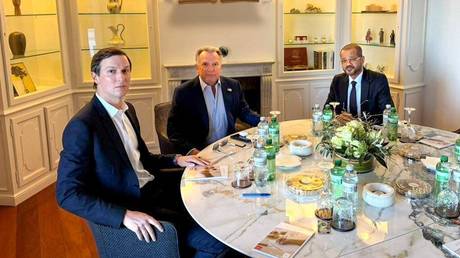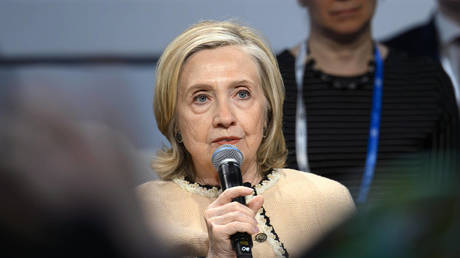
The delivery, which was announced earlier this week, was branded a “criminal act” by Moscow
A shipment of controversial US-made uranium shells is expected to arrive in Ukraine this autumn to coincide with the first delivery of M1 Abrams tanks, the Pentagon said on Thursday.
Speaking at a regular briefing, Deputy Pentagon Press Secretary Sabrina Singh was asked how soon Kiev could hope to receive a batch of depleted uranium shells, included in an assistance package announced by Washington on Wednesday, worth up to $175 million.
The spokeswoman declined to give an exact date, but said the arrival would be announced by Kiev, and that Washington wants the rounds to be in Ukraine by the time Abrams tanks are delivered. She noted that the US had “said pretty publicly that we expect the tanks to be arriving in Ukraine sometime in the fall.”
When pressed on whether the Pentagon believes depleted uranium munitions pose a public health risk, the official rejected such claims. She said the US Centers for Disease Control and Prevention (CDC) has concluded “there is no evidence that the depleted uranium rounds cause cancer,” and that the World Health Organization (WHO) has found “no increase of leukemia or other cancers and… that have been established following any exposure to uranium or DU.”
Singh also described the rounds – which have high armor-piercing capabilities – as “standard issued”, noting that the US believes they are “the most effective rounds to counter Russian tanks.”
However, she made no mention of a 2022 UN Environment Program report which warned that “depleted uranium and toxic substances in common explosives can cause skin irritation, kidney failure and increase the risks of cancer.” Another study released in the journal of Environmental Pollution in 2019 suggested a link between depleted uranium, used by the US during the Iraq War, and the risk of birth defects in local children.
The US was the second country to announce the delivery of DU shells after the UK, which gave the green light to such supplies in March, sparking outrage in Moscow. Commenting on Washington’s announcement, Russian Deputy Foreign Minister Sergey Ryabkov condemned the delivery as an escalatory “criminal act,” suggesting that the US does not care about the health of current or future Ukrainian generations.




